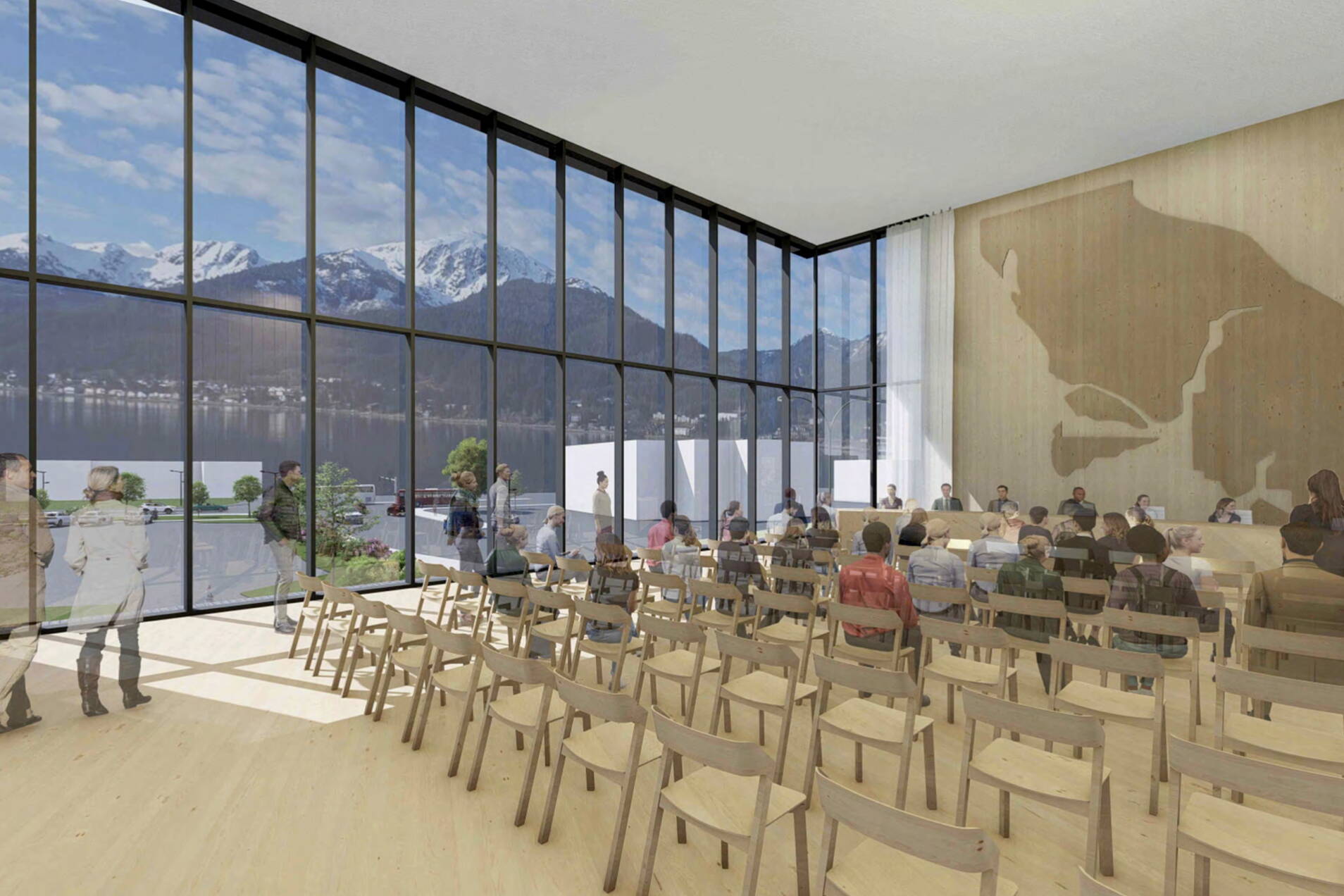For people who complain about the government doing things without considering the concerns of constituents, this upcoming Monday is one of those days that matter.
The City and Borough of Juneau Assembly is taking final action on several major items including the city’s budget and property tax mill rate for the coming year, along with approving large amounts of money to help fund a new city hall and other projects. Public testimony will be allowed on those items before the votes.
That said, it’s best to keep expectations realistic since the politicians have been working on the budget for more than two months and some other items much longer, including time for public input, so they’re not likely to make wholesale last-minute changes since the budget by law must be passed by June 15.
“I don’t want people to think we haven’t been listening to them because we have been listening to them all the way,” Mayor Beth Weldon said Thursday. But when it comes to next year’s budget “at this point all the pieces are pretty much in place.”
However, she added, when it comes to the mill rate “I would say there’s a good likelihood it could change one way or the other.”
The Assembly has made last-minute changes to the mill rate in recent years. They’ve already done so once this year during the final Finance Committee meeting for the budget two weeks ago when they rejected a 0.1% increase that was in place since this year’s budget process started, keeping the rate as of now at 10.56 mills.
The general budget for fiscal 2023 is about $172.3 million and, for the moment on paper, has a $10.3 million surplus due to a $16 million allocation in the state budget to make up for five years of short-funded school bond debt reimbursements. Gov. Mike Dunleavy has been non-committal about whether he will veto some or all of the $221 million in such payments for all municipalities in the state.
A veto of all funds would leave Juneau with a sizable deficit, but the city has more than $10 million in a reserved fund that can cover the shortfall. That knowledge and concerns about residents trying to cope with costs related to skyrocketing property values were among the reasons Assembly members rejected the proposed mill rate increase that would have generated an estimated $540,000 in revenue.
Another major item on the agenda is approving $6.3 million in general funds for the construction of a new city hall. The allocation is a large puzzle piece in a project that currently is estimated to cost between $38 million and $41 million, with the Assembly also working toward putting a bond on the fall municipal election ballot to provide most or all of the funding.
Approving the general fund allocation will lower the amount of the bond, which appealed to some Assembly members who during a meeting last week said other alternative funding sources may be sought as well as aiming for the lower end of the projected cost scale by eliminating features such as an underground parking garage. Final language for a bond measure must be introduced to the full Assembly by July 11 for it to appear on the Oct. 4 ballot.
Other major items the Assembly will consider Monday:
■ Spending $1.5 million for information technology infrastructure upgrades.
■ Spending $2.3 million to replace CT/MRI equipment at Bartlett Regional Hospital.
■ Modifying the city election code to, among other things, require voting petition booklets to be turned in even if there aren’t enough signatures to place a proposal on the ballot, and clarifying procedures for collecting and securing ballots daily from voting centers and from secure ballot drop boxes.
• Contact reporter Mark Sabbatini at mark.sabbatini@juneauempire.com.

